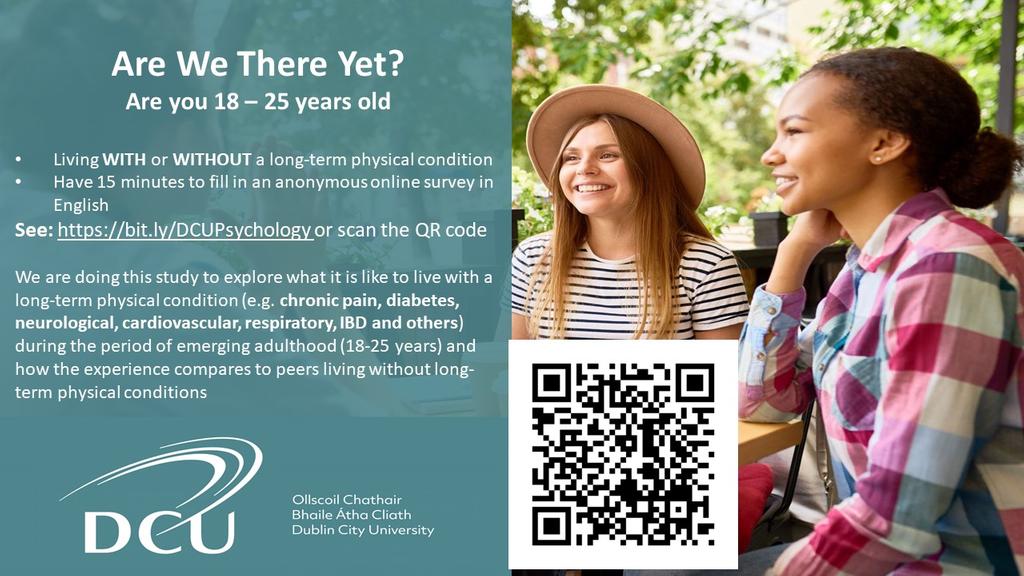We use cookies to improve your experience. By accepting you agree to our cookie policy


Who are we looking for?
The study is looking into the period of emerging adulthood, between the ages of 18-24, and living with and managing a diagnosed, long-term physical condition during this time. Emerging adulthood is a period that can have many life transitions for a person, such as being legally an adult, starting employment, continuing education, moving away from home and moving to adult healthcare.
You are eligible to take part if you are aged 18-25, can read and write English and are able to complete an online questionnaire yourself.
What does it involve?
Participants are asked to complete an online consent form and then proceed to fill in an online questionnaire. The questionnaire should take approximately 10-20 minutes to complete.
All participants complete demographic information, what the experience of emerging adulthood is like, and social support and self-regulation. If you have a long-term physical condition, you will be asked some additional questions on managing your long-term physical condition. The information provided by you will be anonymous and no identifying information (e.g. name, email) about participants is being requested.
This study will contribute to understanding what it is like to manage a long-term physical condition during emerging adulthood, inform future healthcare and healthcare professionals on how to tailor supports and add to the overall knowledge of emerging adulthood.
Who is conducting the study?
Researcher: Orla Mooney
Research centre: Dublin City University
Interested?
If you would like to take part, email Orla on: orla.mooney7@mail.dcu.ie
Closing date
This study closes on Sunday 17th July 2022 at Midnight.
*A long-term physical condition refers to a condition that has been diagnosed by a medical professional, has lasted 6 months or more and requires some ongoing treatment (e.g. medication, GP visits, therapies).
Examples of long-term physical conditions include: diabetes, cardiovascular (e.g. congenital heart defect, hypertension), chronic respitatory (e.g. asthma), chronic neurological (e.g. multiple sclerosis, epilepsy), chrnoic pain (e.g. arthiritis, fibromyalgia, other long-term confition (e.g. chronic fatigue syndrome, irritable bowel syndrome).
We use cookies to improve your experience. By accepting you agree to our cookie policy
 £
£
